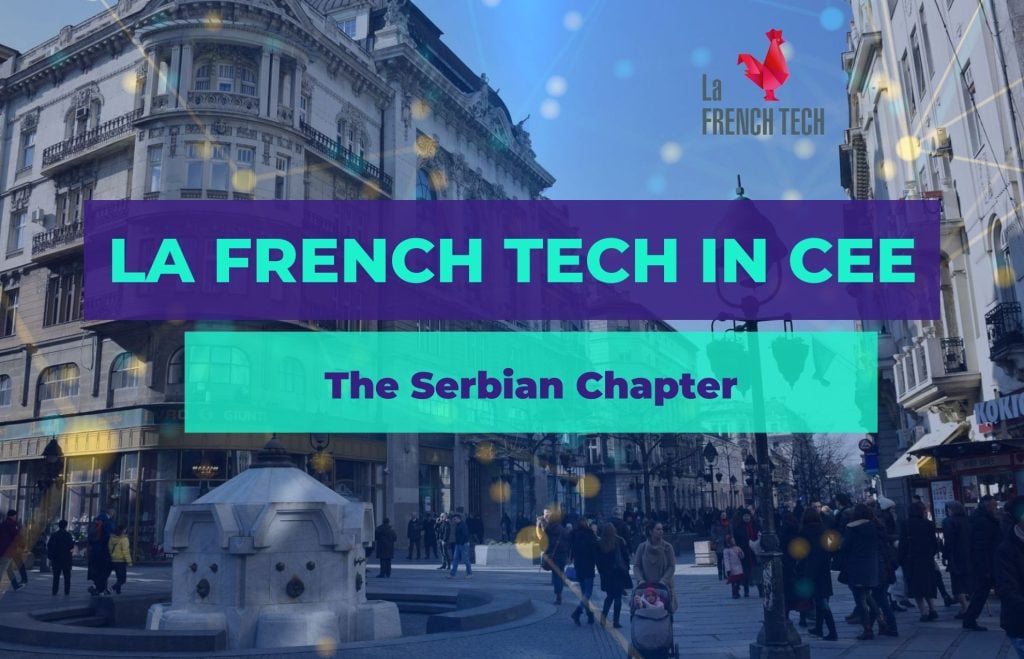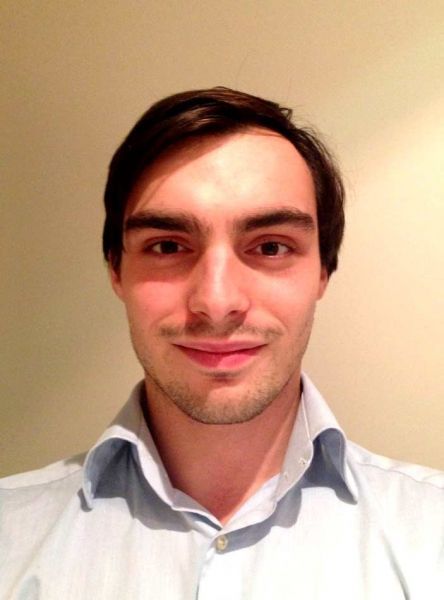Search for...

Welcome back to our series, diving deeper into the La French Tech community and French President Emmanuel Macron’s visionary target of turning France into a “startup nation”. By 2030, the French government aims to focus its efforts in Europe, so the continent can support 10 tech giants worth €100B each.
This series takes us through different countries known for prosperous fields where tech innovation can flourish. The journey began in Bucharest, Romania, went through Sofia, Bulgaria, and Krakow, Poland, and now we are arriving in Belgrade, Serbia.
For France, while the goal of the French Tech initiative is to showcase its own startup ecosystem, the country is also looking to use its experience and resources and assist countries from the CEE, in this case, Serbia, to develop and grow their own ecosystem.
Created with the support of the French Embassy in Serbia, La French Tech Serbia launched in the spring of 2019 with the aim of becoming a bridge that would connect the two countries when it comes to the further developments of its startup ecosystems in the fields of digitalization, IoT, cloud, robotics, bio-technologies, blockchain and much more.
The initiative also aims to gather together entrepreneurs, policymakers, investors, and many more players that can make a difference within the community in the country.
To find out more about the initiative’s mission in Serbia, The Recursive met up with Nicolas Rabrenovic, a co-founder and CTO of Edda, a SaaS platform that helps VCs manage their portfolios, and President of La French Tech Serbia.
As Rabrenovic explains, he is also a part of the Serbian diaspora that now uses their success and experience in accelerating the growth of the country’s tech ecosystem, although most of them have spent their lives outside the country.
Bringing together French entrepreneurs, developers, designers, investors, etc, and creating a tech French community in the country is also one of the goals of the initiative.

At the same time, La French Tech Serbia also aims to further establish itself in the Serbian tech ecosystem by working together with different organizations in Serbia – initiatives, incubators, programs, authorities, and so on.
“We are looking to help out companies in the country – not only the French companies that are in Serbia, but also the Serbian companies if they want to go to France, to advise them on everything related to IT, new technologies, and to connect them,” Rabrenovic tells The Recursive.
So, if a French company wants to start their business in Serbia, La French Tech explains what are the initial steps they need to make, and basically guides them through the whole process and help them navigate the Serbian startup ecosystem – from the legal requirements, renting offices, and all the way up to hiring developers or any type of other staff they’d need.
“For example, we are very aware of the latest tax incentives which are very good in Serbia, but sadly not well known, even by the Serbian accountants sometimes. So we explain to these companies how they can benefit from it. Then, what we do is really try to connect them, make this network of all of our members through our networking events,” Rabrenovic explains.
VR 360 company Wild Immersion and its activities in Serbia is one of the success stories of the French Tech initiative in the country.
Two years ago, the company contacted the French Tech community to gain some insights regarding a project that they planned on doing in Serbia about the preservation of the environment.
“We helped them with getting a letter of support from the Serbian government, with various institutions, such as the Ministry of Protection of the Environment in Serbia or the Ministry of Innovation, and after that we also needed to help them to find the right people to work with in Serbia,” Rabrenovic notes.
The result of the project had a great impact, as it allowed thousands of children across Serbia to see the augmented reality and virtual reality video that the company produced by using the latest technology, he explains.
“It left a very good impression on everyone and it was something very positive. For me, this is the most impactful project we might have done so far in the country,” Rabrenovic adds.
In another case, the French Tech community proved instrumental in connecting Serbian authorities with the French public investment bank Bpifrance, thus making a potential cooperation that would benefit Serbia in the long run, since its main areas of interest are startups, small and medium enterprises, and mid-cap companies.
“So sometimes we have startups and sometimes we have these big institutions. But we really try to be that bridge that understands technology, understands the investment world, and uses this to bring the two countries as close as we can,” Rabrenovic points out.
While the Serbian ecosystem is at the very beginning of its development, so far it has shown tremendous potential, Rabrenovic explains.
For instance, 2021 proved to be a record year for the Serbian startup ecosystem, as it managed to have more than €123M in investments in verticals such as gaming, blockchain, and more.
“I started to live in Serbia about five years ago, and back then, it was very difficult for a startup to raise money. Nowadays, you can go to the Innovation Fund and you can have a mini-grant program, which means up to €70K. If you’re in early development, then you can actually go to the national Science and Technology Park, and participate in the Rising Starts program and get €20K to create something on your own. Then, there is also the Katapult program which provides a €300K matching program,” Rabrenovic says, adding that there are many other programs that provide even more funding for Serbian startups.
Additionally, there are many business angel groups that are starting to operate in the country, such as the Serbian Entrepreneur association, as well as Digital Serbia’s business angel group.
“These are great people – successful entrepreneurs in Serbia or abroad from the diaspora that want to give back to the startup ecosystem in Serbia,” Rabrenovic says.
Successful startups such as the blockchain development platform Tenderly are a great example of what is possible to succeed in the country.
When it comes to countries from the former Yugoslavia, Serbia is also the only country where a French Tech community was established. However, this doesn’t stop the initiative from working with neighboring countries such as Montenegro, which also has a very young ecosystem that looks to start developing.
For Rabrenovic, the potential for expanding the La French Tech initiative is there, and the positive example of the Serbian ecosystem is only the basis for its future activities across the rest of the region.

